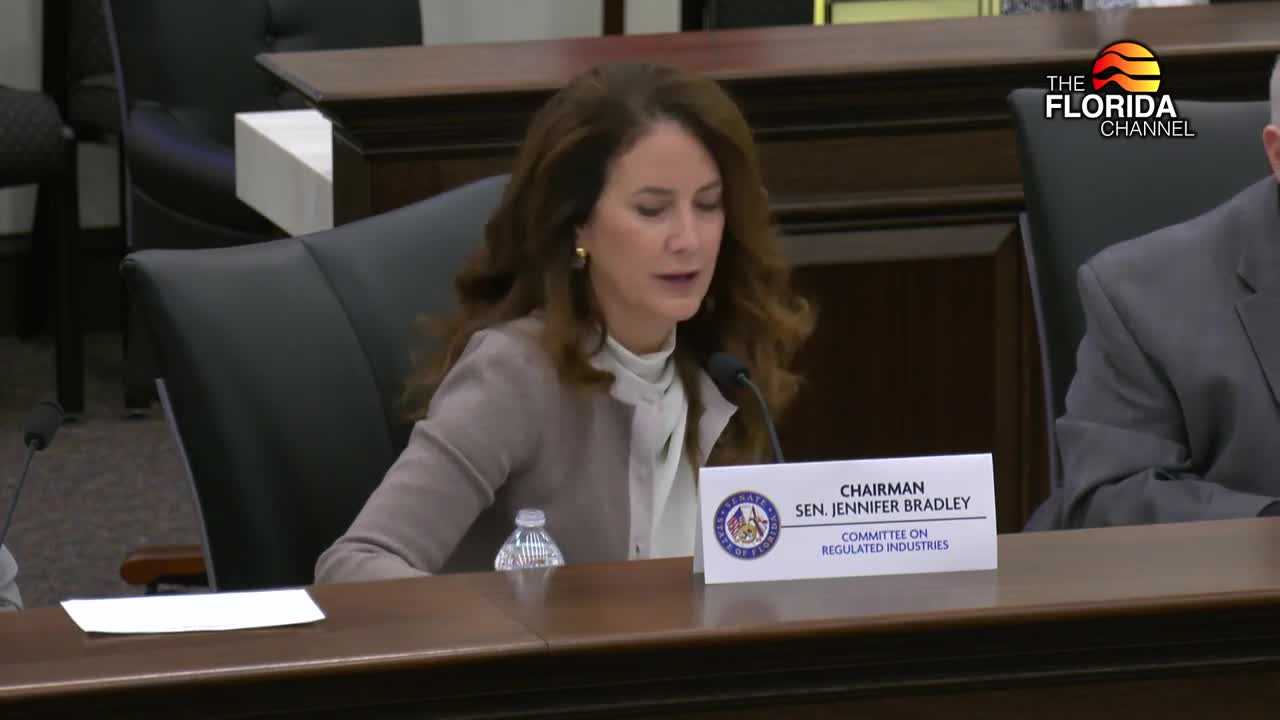Committee advances bill to curb resale of scraped restaurant reservations
Get AI-powered insights, summaries, and transcripts
Subscribe
Summary
The Regulated Industries Committee adopted a delete-all amendment and reported CS for SB 940 favorably after debate over automated bots and third‑party marketplaces that resell reservations at high prices.
The Regulated Industries Committee on [date not specified] adopted a delete‑all amendment and reported CS for SB 940 — the proposed Restaurant Reservation Anti‑Piracy Act — favorably, moving a measure aimed at stopping third‑party marketplaces from reselling restaurant reservations they obtain through automated scraping programs.
The bill, explained by Senator McLean, targets marketplaces that “scrape” reservation systems with automated programs (bots), obtain available reservations and then resell those reservations at marked‑up prices. McLean said the amendment recasts certain definitions, replaces “food service establishment” with “public food service establishment,” and broadens the definition of “third‑party reservation platform” to include platforms that do not have a contractual agreement with a restaurant but nonetheless take or resell reservations.
The amendment also requires third‑party platforms that lack a contractual relationship with a restaurant to provide the restaurant the contact information for the consumer who made the reservation when the reservation is collected through the platform. McLean and committee members discussed whether major platforms that integrate via API (for example, OpenTable or Resy) would remain covered under the statutory exception when the restaurant has a direct contractual or integration relationship; McLean said that is the intent of the amendment.
Samantha Padgett, vice president of government relations and general counsel for the Florida Restaurant and Lodging Association, testified in support and described the bill as targeting the marketplace rather than trying to police overseas bots. Padgett said platforms that have a direct relationship with restaurants (Resy, OpenTable and similar services) share reservation information with the restaurant and would not be the target of the prohibition on resale; the bill is directed at third‑party marketplaces that “scrape” and resell reservations without the restaurant’s permission.
Committee members questioned how the bill would operate when bots originate overseas and whether the bill would impose undue burdens on restaurants that use third‑party booking tools. McLean said the legislation addresses the marketplace conduct that is practically regulable rather than the origins of scraping programs.
The committee adopted the delete‑all amendment (barcode 307066) and then voted to report CS for SB 940 favorably. The committee vote was recorded as favorable and CS for SB 940 will proceed for further consideration.
The bill as amended leaves open some definitional questions members asked to be clarified in future drafting — notably how the statute distinguishes integrated booking partners from noncontractual resale marketplaces and the mechanics for sharing consumer contact information — and sponsors said they will continue to refine the language.
Votes and next steps: the amendment was adopted and CS for SB 940 was reported favorably by the committee and will move on in the legislative process.
